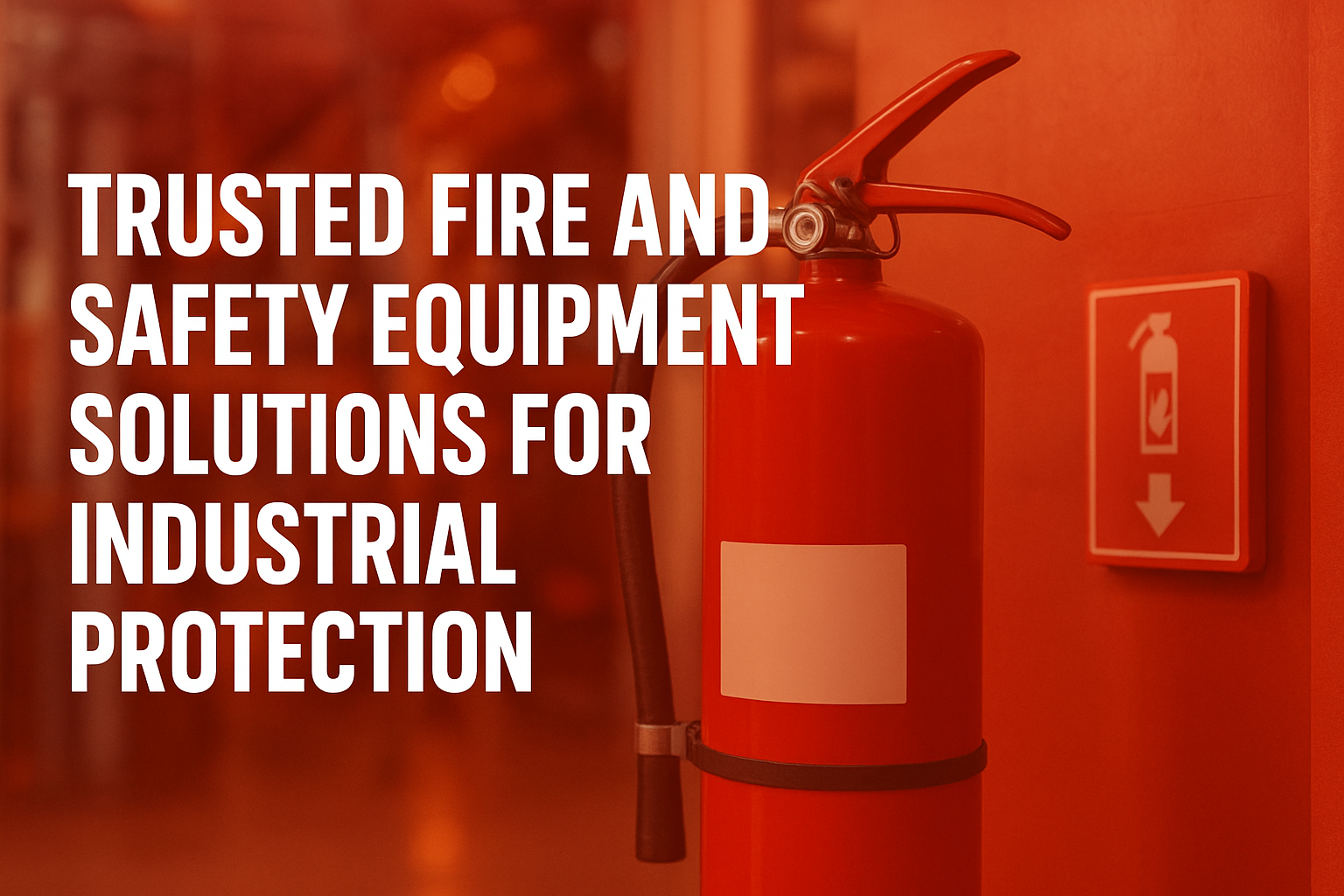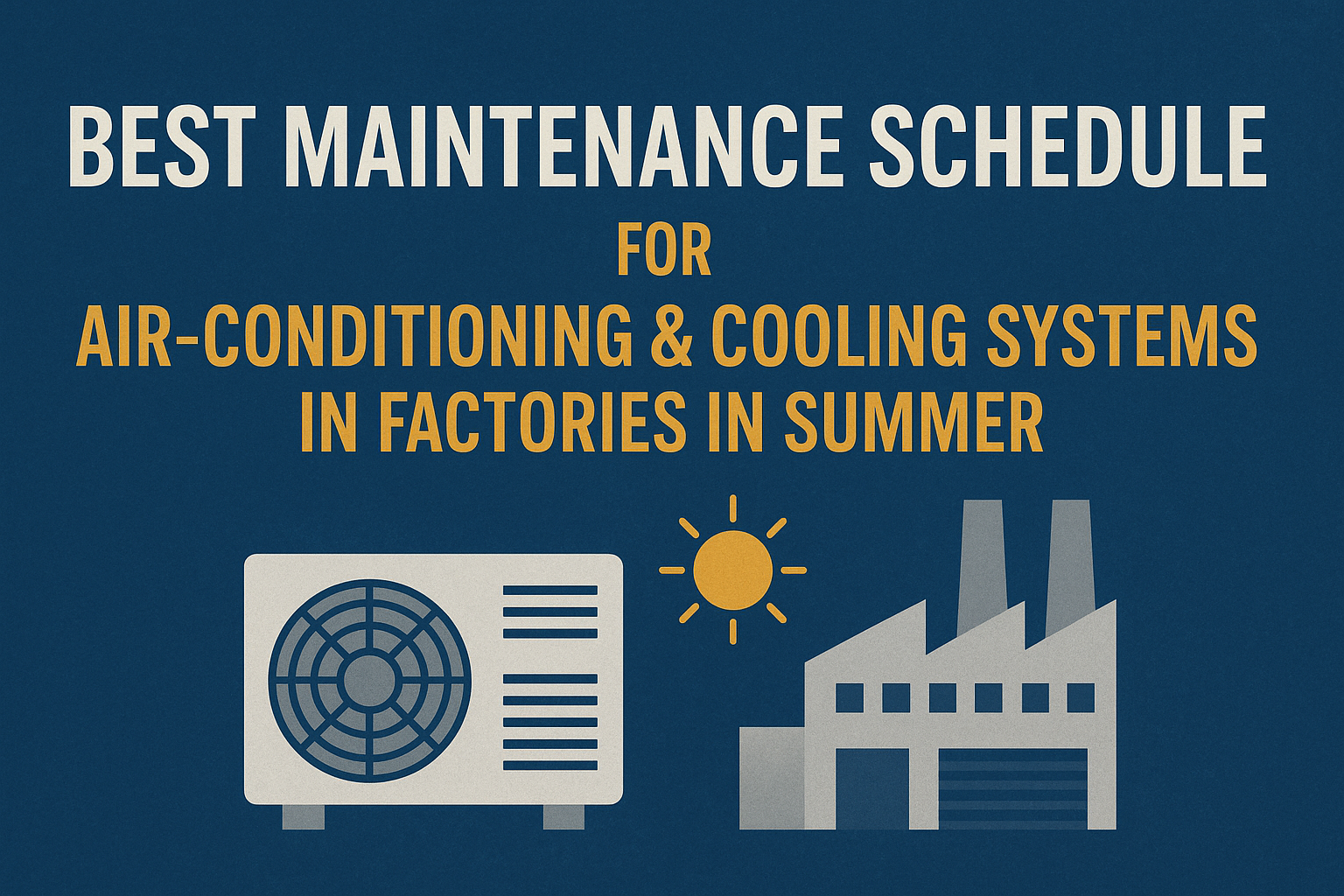Maintaining cooler temperatures in the factories during summer is not just a matter of comfort; it also contributes to efficiency and safety, as well as protecting equipment. Air-conditioning and cooling systems put in more effort during the hotter months. Less maintenance would let them gobble more power, frequently break down, and disrupt production. A clear maintenance schedule is a sure way to fend off these hazards.
Regular inspections should be the first step. Systems should be checked before the summer heat sets in, as they will have to bear a much heavier load. Filters should be inspected and changed one to two times per month. Dust, dirt, and debris create a block to the airflow and force the system to produce more work. Clean filters make the system operate efficiently and keep the air healthy for the workers. Filters may have to be checked more often in industrial environments due to heavier dust loading.
The coils serve another vital role. Both evaporator and condenser coils gather dirt over time. Dirty coils impede the system's impotence to absorb and give off heat. Cleaning once per season is a must to maintain smooth functioning. Under continuous operations of the factory, cleaning might be requisitioned more than once in the summer. Proper upkeep of the coils will keep your energy bills down and avoid unexpected shutdowns.
This is an important and often overlooked topic. These components draw in the air necessary for ventilation. If fans are misaligned or damage has occurred to them, they will vibrate and exert extra strain upon the system. Lubrication must always be applied before any inspection of moving parts is carried out in order to reduce wear and prolong life. Tensioned and approved belts shall also be ensured to avoid breakdowns.
The cooling towers, if any, shall be properly attended to. Scaling, algae, and sediment lower its efficiency and bring corrosion. Thus, monthly inspections are the norm with cleaning as needed. Preventing biological growth with appropriate chemical treatment of water in the system ensures smooth operations of the equipment.
Thermostats and control systems shall be calibrated before the summer peak; failing or incorrectly calibrated sensors will always give the wrong temperature, resulting in overcooling, energy wastage, or discomfort to workers. A weekly check is best. In factory setups, automatic control systems would often require updating or reconfiguration for the best performance.
Another task is to check for refrigerant levels. Low levels of refrigerant reduce the efficiency of cooling and put undue stress on the compressor. A technician should measure and top up refrigerant as needed during scheduled inspections. Leaks must be detected early to prevent costly repairs. Overcharging or undercharging refrigerant is equally harmful, so this task should always be done professionally.
Drain lines and pans also need monitoring. A clogged condensate drain can become a threat through water leakage, dampness, or even mold. A monthly check in summer can prevent any damage to the floors, equipment, or electrical systems of the factory. Keeping drains clean makes the environment safe and clean.
Maintenance can also enable energy efficiency. Consider sealing duct leaks, checking for insulation, and assessing system performance, which translates to great cost savings. In factories operating 24 hours, such minute costs are considered big money when summed up by the end of the season.
Melriya Technical Solutions L.L.C. understands that every factory has very unique needs with some requiring constant climate control to protect sensitive equipment or materials; less stringent and robust cooling can often be supplied for labour comfort in huge spaces. A customised maintenance schedule aims to strike a balance between cost and performance. Scheduled maintenance is less costly than reactive maintenance and has very little downtime associated with it.
If your factory is gearing up for the peak temperatures, now would be an excellent time to review your maintenance practices. Work with specialists who can design a programme to suit your requirements. Doing these actions today will not only save you from expensive interruptions tomorrow but will also have your plant running smoothly all summer long.
Get in touch via www.melriya.com to develop a maintenance plan that suits your factory.






.png)








